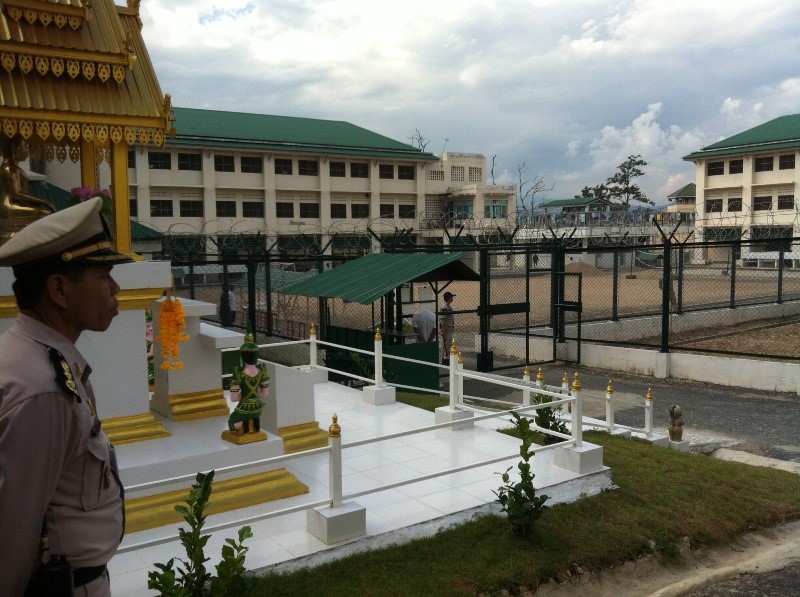Despite Thailand’s famously appalling prison conditions, some ex-prisoners are preferring reimprisonment over the challenge of reintegrating into society.
The punitive slant of Thailand’s judicial system threatens offenders with heavy sanctions, but offers few rehabilitation mechanisms to address the difficulties inmates face upon returning to life outside the prison gates.
Porntip ‘Kolf’ Mankhong, a former lèse majesté prisoner, reports that release from jail often comes hand in hand with isolation and fear.
“When you are released, society has changed so much. Prisoners feel alone. The majority of them do not own anything outside.”
Many have lost contact with former support networks such as friends and family, a consequence compounded by a new prison-wide rule that prisoners may only have ten different visitors.
After being released, Kolf (right) formed a civil society group “Fairly Tell” to assist other former female prisoners when after they are released
Akaradej, (last name withheld due to privacy concerns), a former engineering student convicted under the lèse majesté law, agrees that the prison system provides little preparation for leading a life free from crime.
“The Department of Corrections usually conducts orientations before releasing prisoners. However, they are very short like a university orientation.”
“There is no real process to follow up former prisoners, to support them in job seeking or to integrate them successfully into society.”
What is more, stigma surrounding imprisonment makes difficult finding new networks, and a new life. A criminal record presents practical challenges for finding employment.
“I think one of the biggest problems is the attitude of most people in Thai society towards ex-prisoners. People tend to stigmatise them, especially if you are an ex-lèse majesté prisoner,” disparages Akaradej.
The isolation is sometimes so dire that former inmates begin desiring a return to the familiarity of prison life.
“[Some ex-prisoners] want to come back to prison. They do not fear anything here,” said Pornthip. “When you arrive in prison for the first time, you are powerless. But, if you come back, you will have power.”
Such pining for prison life over reintegrating into society is doubly worrying given the generally abject conditions of Thailand’s prisons.
The country has one of the world’s highest ratio of prisoners per population. As of November 2016, the number of inmates was more than 304,090 persons, much higher than prisons’ maximum capacity of 217,000 persons.
The strict control enforced over prisoners within Thai jails may itself exacerbate the process of reintegrating into society. Prisoners have limited access to current affairs since newspapers are presently forbidden. Visitation is similarly subject to regulations, increasing the isolation of prisoners from the outside world.
One of Thailand’s few state-sponsored rehabilitation programs pertains only to former drug users, and comes in the form of a boot camp. Participants undergo a drug treatment regime designed by the Ministry of Public Health, the army’s discipline practice and agricultural training.
Upon finishing the program, prisoners are released on parole. In total, the program accommodates 5,000 prisoners across the 40 boot camps every year for a period of 3–6 months.
Justice Minister Paiboon Koomchaya announced in September 2016 that it was time for Thailand to consider drug abuse as not a crime, but as a health issue. But such logic has yet to be extended to other crimes that plague the country, which also cannot be solved by punishment alone.
Thailand has the world’s highest number of female inmates and 80 per cent of them are drug convicts



